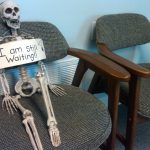Retired practitioners showed their mettle during the pandemic, and some want the option to be made permanent.
A proposed “step-down” registration category that would enable senior and retired doctors to continue practising in a reduced capacity will come under the spotlight this weekend.
A senior doctors advocacy group and AMA Queensland are effectively calling for the reintroduction of a change to the National Law that allowed retired health professionals to re-enter the workforce to meet the increased needs of the pandemic.
The groups have submitted a proposal to the Queensland government, and it will be under discussion at the inaugural conference of the Australian Senior Active Doctors Association (ASADA) in Redcliffe, Queensland on the weekend.
ASADA supports doctors in the later stages of their careers and encourages government and others to draw on their extensive skills and experience.
“At the moment, once doctors get to be quite senior it becomes really onerous to maintain their registration because they’re just not working the hours they would have previously,” said AMA Queensland president Dr Maria Boulton. “We’re looking at ways we can safely keep them contributing to the profession within their area of expertise.”
Currently, the National Law gets in the way. But if approved, the new registration category would allow both GPs and specialists to continue practising “in the public interest”, according to ASADA.
“Basically, you reach a point in your career where you choose, for whatever reason, no longer to be registered,” said Associate Professor Geoffrey Hawson, ASADA president and AMA Queensland board director.
“But then you cease to be a functioning medical practitioner and you can no longer use any of your skills, any knowledge that you’ve gained during your entire career – in any way.”
The group put its proposal to the state government late last year, but discussions between Queensland AMA and Queensland Health are understood to be moving along only slowly.
AHPRA’s Queensland state manager and the chair of the MBA’s Queensland board are set to attend the conference as panellists, although Professor Hawson was unsure how the proposal had been received by regulators.
“The proposal has been available to the people on that panel for two or three weeks, and I’m sure it’s been discussed at national level, and that we’ll get a national level response tomorrow,” he said.
The association supports the development of a “medical reserve” of senior active doctors to meet the increasing healthcare needs of those living with chronic disease, underserved areas, those who need vaccination assistance and to boost the workforce during national emergencies and pandemics.
“Overseas, in the US, UK and France, we’ve seen retired doctors form medical reserves to help their communities in natural disasters, emergencies and pandemics, so this is a national issue that could have a tremendous positive impact helping people in need,” Professor Hawson said.
“Our proposal would create a senior active doctors category of medical registration that would allow retired doctors to work in a limited scope as well as volunteer to help in emergencies or provide services in areas of high need.”
ASADA is also monitoring the proposed introduction of cognitive testing for doctors aged over 70 – currently under review by AHPRA – and opposes testing that is mandatory or ageist. In addition, the association is looking at ways to address the difficulties older practitioners have with CPD and recency of practice requirements as they reduce their practice.
Nearly 100 delegates are expected to attend the Senior Active Doctors Conference this weekend.






